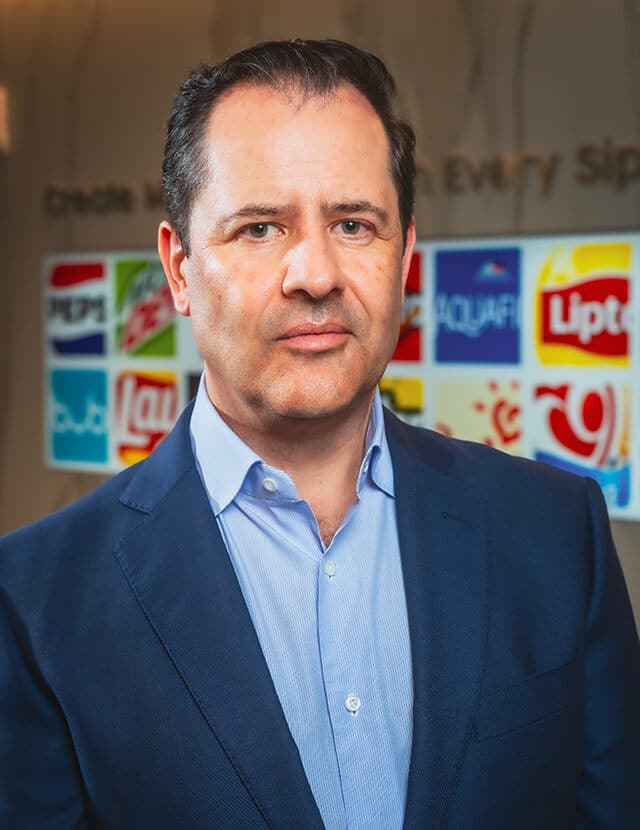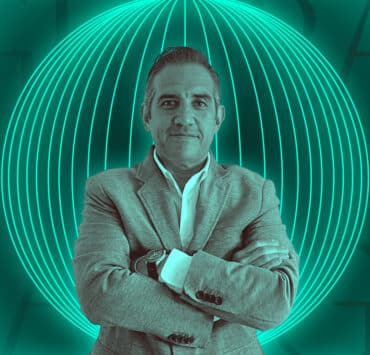|
Getting your Trinity Audio player ready...
|
Twenty-three years and eleven roles. Juan Zapiain’s career at PepsiCo began with a summer internship at Frito-Lay in Dallas between his first and second year of business school. It’s been his professional home ever since, though his scope and job titles have elevated exponentially over the last two decades. Zapiain’s latest promotion to SVP, global process executive of PepsiCo Global Template (PGT), came with a heavy assignment, one of the company’s most ambitious digital transformation initiatives of modern times.
The PGT program aims to replatform the entire company’s enterprise resource planning (ERP) system onto SAP S/4HANA, harmonizing and streamlining processes across the global organization. This hefty lift, one that can make any digital leader’s pulse race, is even more complicated than it already seems. PepsiCo’s integrated business model, spanning from product creation to supply chain to sales, means that the ERP implementation must connect every facet of the value chain.
“I’m a naturally curious person, and it’s important to me to understand and appreciate the people I work with every day.”
Juan Zapiain
The final cherry of complexity includes that US-based businesses like Frito-Lay and beverage companies previously operated on a patchwork of legacy systems, complicating the ERP implementation further, but underlining the necessity of such a transition.
“The integrated business model here means that PepsiCo employees make, move, and sell,” Zapiain explains. “We work with agricultural professionals to take what they produce, and then it’s ours up to the point of sale. Our own associates manage the business, so this ERP transformation is as complex as it gets.”
PepsiCo is in year six of a planned ten-year ERP play. At the time of speaking, Zapiain and his department of 1,000 personnel had recently rolled out the new ERP for Frito-Lay, with the beverage business being completed by the end of the year. Developing markets, like South Africa, and more traditional markets like the UK, Poland, and other chunks of Europe were completed in recent years as well.
Cultural Competence
Even for a veteran of Zapiain’s stature and tenure, he’s learned a lot about the company he’s called home for so many years.
“When I came into this role, I thought I knew this company,” the SVP says, laughing. “But it was a whole new world to learn from a functional perspective: the way we engage with multiple markets, the differences across geographies. Even some of the acronyms and language in the technology space were new for me.”

Fortunately, Zapiain is well-versed in succeeding across different cultures and environments. Born and raised in Mexico City, the SVP completed his undergrad in economics before entering the banking sector for three years, after which he pursued his MBA at the University of Texas at Austin. That decision would lead to his internship and long career at PepsiCo.
The SVP says learning the cultural nuances of the US required some significant study. Professional interactions in Mexico felt much less direct, relying on personal networks and collaborative relationships. In contrast, Zapiain had to adjust to US corporate culture that seemed, on its face, to be more transactional, with relationships centered on achieving objectives.
Zapiain has succeeded in his organization not by assimilating, but by applying the best parts of himself in slightly different ways.
“I think you quickly learn that success in a setting like a multinational company is not just about performance,” the SVP says. “It’s about understanding the unspoken cultural codes. So much of it goes back to how you navigate that world without losing your authentic self. For me, that meant continuing to place a high priority on developing relationships with my people without them feeling like I was being nosy. I’m a naturally curious person, and it’s important to me to understand and appreciate the people I work with every day.”
The executive wants to recognize the full humanity of his colleagues, acknowledging the lives they lead outside the office, and hopefully creating a more holistic environment where people feel they can be fully engaged and committed. It’s not a management tactic, though—it’s just the person Zapiain is.
Global Citizens
The leader’s life outside work also says a lot about the kind of person he is at work.
Zapiain and his wife, Blanca, have been together for more than thirty years. The couple has raised three fully bilingual children who have spent extensive time (including a full three-year stint) in Mexico, allowing the children to understand their roots. One of Zapiain’s sons will be playing college golf next year and has elected to play under the flag of his parents’ native country.
“We moved around a lot, and I know there are some things you have to sacrifice when you don’t stay in one place for your kids’ whole life,” the SVP explains. “But I hope that cultural adaptability will be an edge for them. I really think of them as global citizens, and I think they see themselves that way too.”

